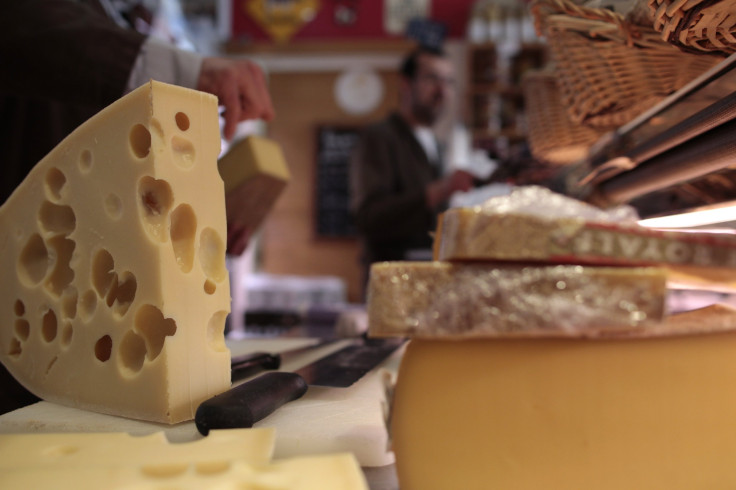'Fromagicide' Begins As Russian Sanctions Lead To Destruction Of 20 Tons Of Cheese [PHOTOS]

Blocks of cheese piled high, as far as the eye can see. Massive stacks of tomatoes, peaches and nectarines, too. It might sound like a competitive eater's dream, but it's actually the scene in a warehouse in Russia, where food is being destroyed as part of economic sanctions against Western imports.
An order signed by Russian President Vladimir Putin on July 29, barring imported Western food products, went into effect Thursday. The largest haul to be destroyed was 20 tons of cheese. The fromage was smuggled into the country from Latvia, according to Interfax, thanks to forged certificates declaring it was from Russia. But that didn't fool local inspection officials.
First photographic evidence of the fromagicide coming in. pic.twitter.com/uVd9rljF8p
— Shaun Walker (@shaunwalker7) August 6, 2015Shaun Walker, the Guardian's Moscow correspondent, had a front-row seat to what is being dubbed "fromagicide" -- when tons of cheese were destroyed by a bulldozer in the city of Orenburg. The cheese was smuggled in via car from Kazakhstan. Next to feel the weight of the sanctions is pork -- the destruction of large shipments of the meat is set to take place in St. Petersburg. And a truck carrying 1.5 tons of tomatoes from Belarus quickly turned around upon reaching the Russian border after the driver learned about the sanctions, Latvian Public Broadcasting reported, citing a RBC report.
State TV correspondent live as a bulldozer literally ploughs into wheels of "unidentified European cheese" behind her pic.twitter.com/k5iyeyqiOC
— Shaun Walker (@shaunwalker7) August 6, 2015Hundreds of tons of food could be destroyed as a result of the sanctions -- and not just in Russia. The European Union has set aside around $167 million for farmers to destroy or give away crops hardest hit by the sanctions, said CNN Money. "This is a measure aimed at reducing the level of supply so the prices don't drop to crisis levels," said European Commission spokesman Roger Waite.
© Copyright IBTimes 2024. All rights reserved.





















